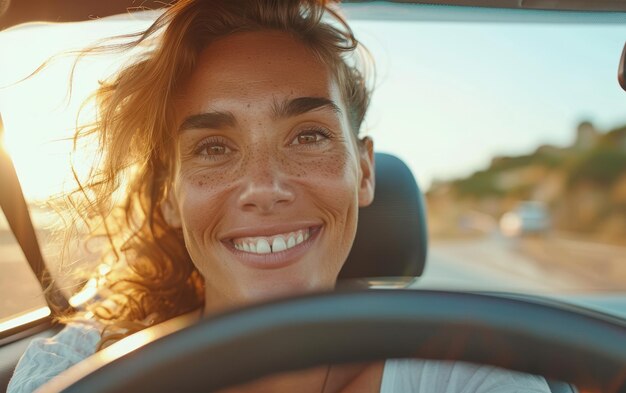
Overview:
Driving alone presents a unique set of experiences that blend solitude with the freedom of the open road. This article explores the psychological effects of being behind the wheel when traveling by oneself. It examines the interplay between independence, focus, and the emotional challenges that may surface. Understanding these factors can lead to a healthier, more mindful approach to solo travel.
Alone on the Road:
The solitary nature of single-occupant driving offers an escape from distractions. With fewer external influences, drivers often find an opportunity for self-reflection and personal space. However, extended periods of solitude may also spark feelings of isolation. Recognizing both the advantages and potential challenges is key to managing the solo driving experience.
Mental Focus:
Driving alone can sharpen concentration and enhance mental clarity. The absence of in-car chatter encourages a heightened state of awareness, allowing the mind to focus solely on the road. This heightened attention can lead to improved driving performance. However, it is important to remain vigilant and avoid slipping into monotony during long journeys.
Emotional Variance:
Solo driving may trigger a range of emotions. The quiet of the cabin can lead to moments of introspection or, at times, loneliness. Emotional fluctuations are a natural part of extended solitude, requiring drivers to be mindful of their mood. Embracing these variations helps foster emotional resilience while maintaining safe driving practices.
Self-Reflection:
Being alone on the road offers a chance to explore personal thoughts without external interruption. This reflective period can encourage growth and deeper understanding of one’s feelings and habits. The time spent driving becomes an opportunity for self-improvement, reinforcing positive behaviors and helping to navigate any negative emotions that might arise during the journey.
Coping Strategies:
Managing the psychological impact of solo driving involves establishing coping strategies. Techniques such as listening to calming audio, taking scenic breaks, or even practicing mindfulness can be effective. These strategies help mitigate feelings of isolation while enhancing overall well-being. Developing a personal routine for mental health during long drives is a proactive approach to solo travel.
Sense of Freedom:
One of the most positive aspects of driving alone is the sense of liberation it brings. Without the need to accommodate others, drivers experience complete control over their journey. This autonomy fosters creativity and independence, allowing for spontaneous decisions and personal exploration. The freedom to set one’s own pace can be both invigorating and empowering.

Isolation Issues:
Despite the benefits of solitude, isolation can sometimes become overwhelming. Long hours on the road without companionship may lead to feelings of disconnection. It is important to recognize these moments and take steps to counteract them, such as making brief social calls or stopping at a friendly rest area. Balancing solitude with periodic interaction helps maintain emotional balance.
Risk Awareness:
Solo driving demands a higher level of self-awareness regarding mental and physical states. Without the immediate feedback of a co-pilot, drivers must monitor themselves closely. Awareness of fatigue or distraction is crucial, as these factors can impact safety. By staying in tune with one’s inner state, solo drivers can take corrective actions before minor issues escalate.
Personal Growth:
The experience of driving alone often leads to a deeper sense of personal growth. The challenges encountered on solitary trips provide lessons in self-reliance and adaptability. Over time, these experiences can boost confidence and enhance decision-making abilities. The journey becomes as much about inner development as it is about reaching a destination.
Summary Thoughts:
The psychological impact of driving alone is a blend of focus, freedom, and occasional solitude-induced challenges. By acknowledging and addressing the emotional spectrum involved, drivers can transform the solo journey into an enriching experience. Embracing this mindset leads to safer travels and a more fulfilling relationship with the time spent behind the wheel.

 The Psychology Behind Solo Driving: What You Need to Know
The Psychology Behind Solo Driving: What You Need to Know Innovative Techniques for Enhancing Road Safety
Innovative Techniques for Enhancing Road Safety Overcoming Driver Fatigue: Tips and Tricks
Overcoming Driver Fatigue: Tips and Tricks Sustainable Driving: How to Lower Your Vehicle's Carbon Footprint
Sustainable Driving: How to Lower Your Vehicle's Carbon Footprint Navigating Different Driving Environments: A Comprehensive Guide
Navigating Different Driving Environments: A Comprehensive Guide
Reviews
Linda Clark
These articles have made my daily driving routines much safer.
Robert Williams
A practical guide for any driver.